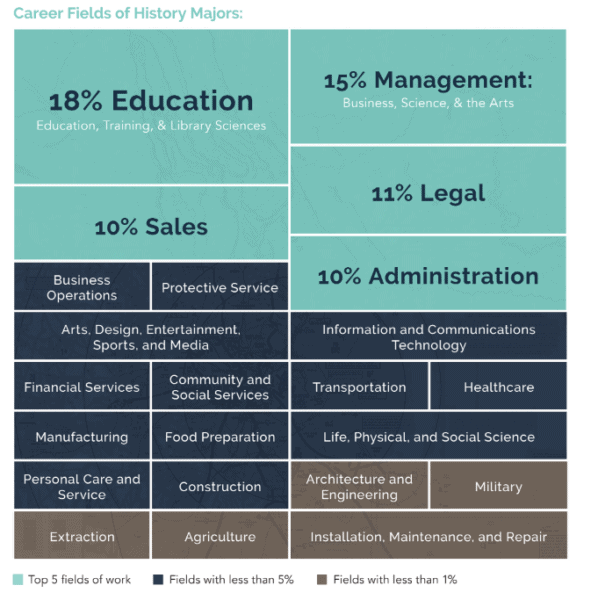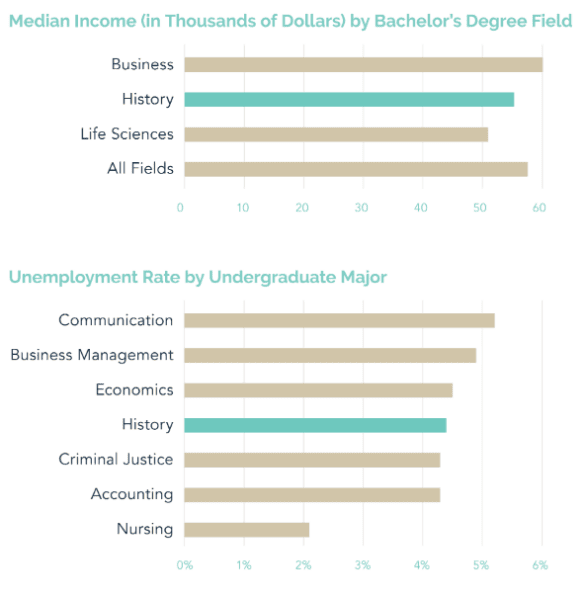This essay is part of the AHA’s first edition of the Careers for History Majors Booklet (2018). This booklet has been updated with a second edition (2026).
By Paul B. Sturtevant
A history degree doesn’t narrow your opportunities after college. Instead, the history major opens a world of possibilities for your future. Federal government data show the variety of exciting career paths that history majors follow.
History majors pursue a variety of professions, and the majority rise to high positions in the careers they choose.

For a more detailed analysis of this data, see “History Is Not a Useless Major: Fighting Myths with Data.”
College graduates with a degree in history earn median incomes of $55,000. This is only marginally less than the $60,000 earned by business majors, and more than the $51,000 median for people with life sciences degrees.
As you can see, career prospects for history majors are good. You get to decide where your path lies: your degree is a springboard to one of the many fields that value the skills you learned in college.
Median income is the middle data point for all respondents reporting full-time employment, ages 25–64.
From 2010 to 2014, the vast majority of history majors had jobs, with less than 4.5% unemployed.
Data source for all charts: ACS 2010–14, 5-year Public Use Microdata Sample.

Paul B. Sturtevant is a medievalist, social scientist, and public historian. He received a PhD in medieval studies from the University of Leeds and is audience research specialist at the Smithsonian Institution, as well as editor in chief of The Public Medievalist.
Related Resources

January 1, 2026
Choosing a Career Pathway

January 1, 2026
What Can You Do with That History Degree? Exploring the Data

January 1, 2026